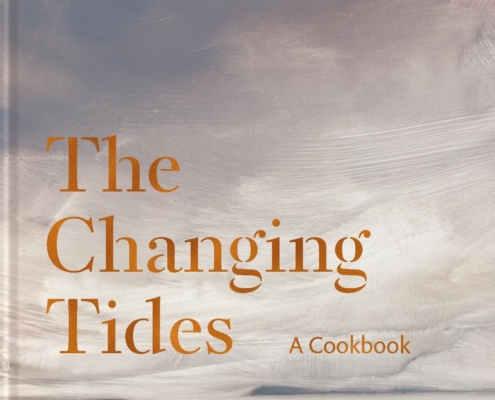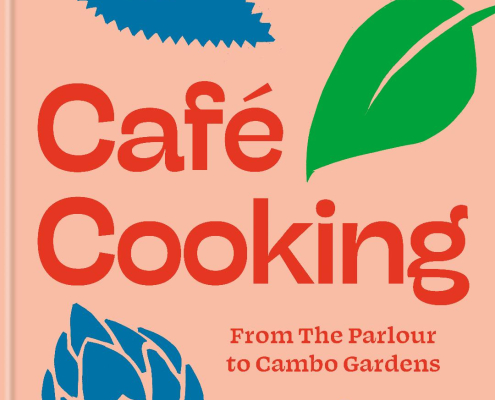Kitchen Press is a new, independent publisher specialising in food writing. It aims, through lovingly crafted bespoke cookbooks, to connect innovative chefs, expert food writers and independent restauranteurs with customers and others around the world who love food.
We believe that the whole experience of reading about food and cooking should be as pleasurable and inspiring as eating it, and we want to help promote the people and places doing that best.


Acqua Pazza Crazy Water Fish – from Cookie Cooks
Crazy water, or ‘acqua pazza’, is a way of poaching fish. It has its origins on the west coast of Italy and has become well-known in holiday destinations such as Capri and Ponza. This is poached fish with flavour. It is an incredibly easy and healthy way to cook, and perfect for people on diets.
Serves 2
Preheat your oven to 200°C.
Clean, gut and descale the fish (or get your fishmonger to do it for you). Put a little salt, a parsley stalk and half of a crushed garlic clove in the cavity. Pour a little olive oil in the bottom of an ovenproof dish. Put the fish in, and scatter around the chopped tomatoes, the crushed garlic cloves (broken up into pieces), and some chopped parsley. Season it and crumble in a little chilli pepper if you like.
Now pour in the white wine, and add enough water to come up just below the middle line of the fish. Bake it for around 20 to 25 minutes. To check it is cooked, pull on a fin – if it comes away easily, it is ready.
Use a slotted spoon to move the fish on to a plate, and then peel off the skin and take the flesh from the bones. Put the flesh back into the sauce in the oven dish and serve it hot or cold.
Buy Cookie Cooks by Melanie McCallum & Domenico Del Priore here
Cookie Limoncello – from Cookie Cooks
Limoncello, the delicious after-dinner digestif, is really easy to make. In Italy we can buy 95% alcohol specifically to make liqueurs, but this isn’t an option in the UK so just use the strongest vodka you can find. We use our own, unwaxed lemons. As always, sterilise your clean jars and bottles by putting them in the dishwasher for a cycle or by giving them 10 minutes in the oven at 180°C. This makes a lovely Christmas present.
Makes 2 litres
Firstly, remove the zest from the lemons with a sharp knife, taking care not to include the bitter white pith. Drop the zest into the sterilised storage jar, then pour over the alcohol, seal and place in a cupboard. If you remember, you can shake it gently every few days. I never do. It will be ready in about three weeks, but longer is fine.
Once your lemon zest has steeped, make the syrup. Put the sugar and water in a pan over a medium heat and bring just to the boil, but don’t let it brown at all. It will thicken up to syrup with a few minutes of simmering. Once thickened, leave the syrup to cool.
Strain the alcohol using a sieve, and add it to the syrup. Decant the mixture into sterilised bottles and it’s ready. Once you have made your own, you’ll never buy it again.
Walnut Pesto – from Cookie Cooks
With their wonderful, almost meaty flavour, walnuts are my favourite nut. I truly think they go well with everything. We have some really productive trees in Italy, and if Domenico hasn’t stripped them to make his walnut liqueur, then I get the kids to collect them all.
Serves 6–8
In a food processor, grind the walnuts, Parmesan and garlic to a paste. Add the olive oil and put the mixture into a jar, with a thin layer of oil over the top if you’re keeping the pesto for later.
If you’re eating it there and then, mix the ricotta into the pesto until it’s evenly distributed. This is great with gnocchi, or stirred into a plain risotto.